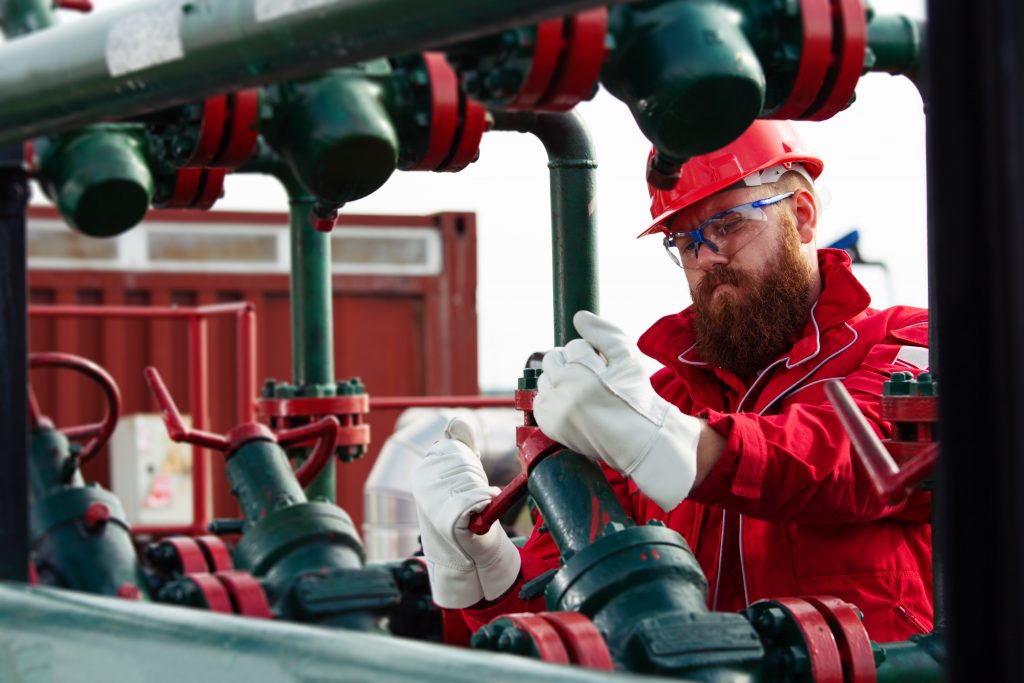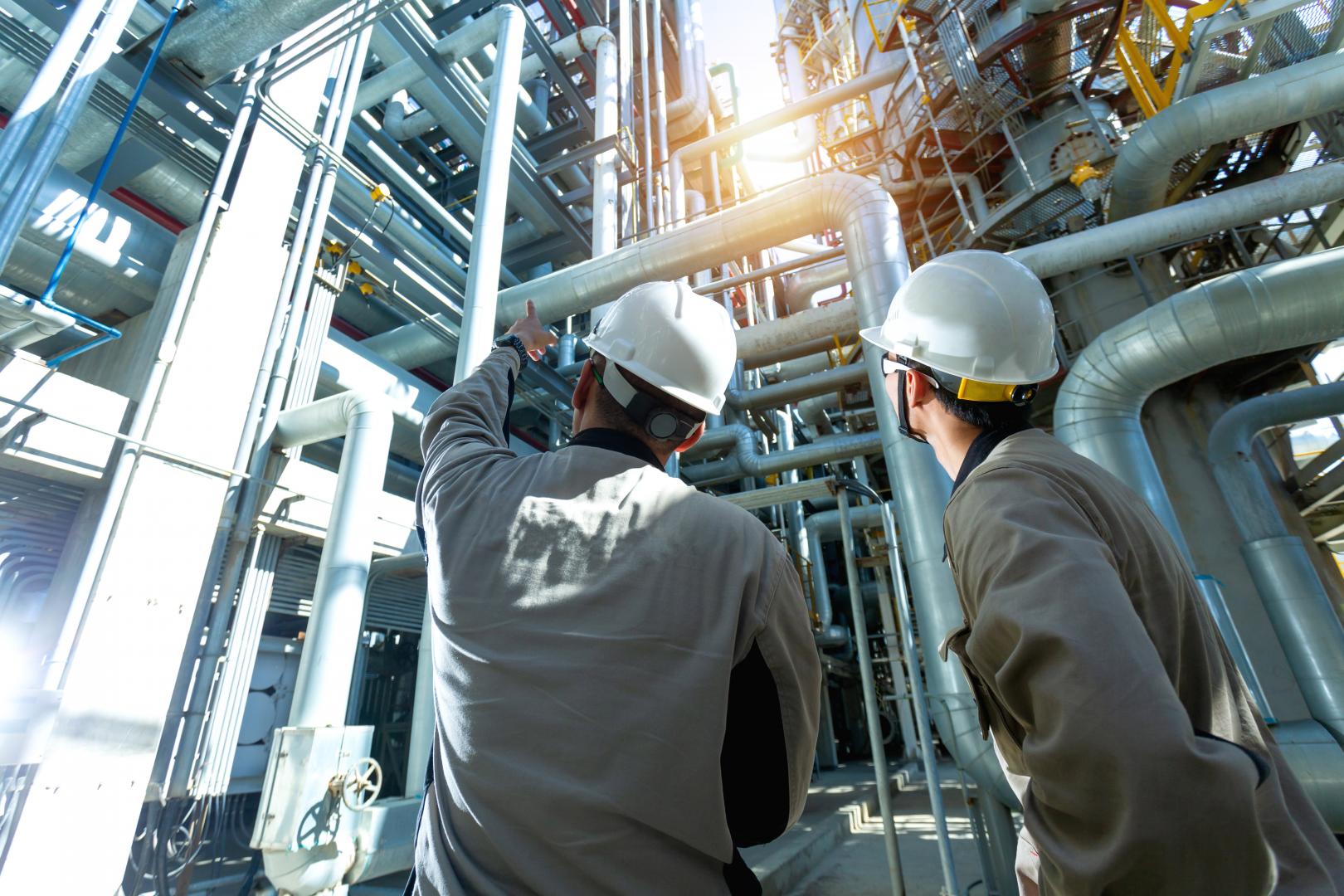Safety, sustainability and productivity of employees, machines and the operation processes are the key elements of a large industry but also key issues of global worries. Many studies have shown that effective occupational health and safety now plays the most significant part in any successful business.
Therefore, the role of installing and operating safety equipment in industrial workplaces that require heavy machineries, such as automobile manufacture, Apparel and Textiles, Petroleum & Coal, Machinery and construction, is indisputable.
Industrial safety equipment and machine safety devices are now an imperative interface between the machinery apparatus and the employees in operation. However, while the industry leaders take the ergonomic designs, structures, fuel or electric consumption of the machinery pieces into account, safety, the most important topic of discussion, does not get the limelight it deserves.
In this article, we will take a look at why industries need to invest more in safety equipment to avert injuries, financial losses and unexpected productivity disruption in workplaces.

Industrial Safety: An Overview
In a general scenario, a functioning factory or warehouse relies on a workforce along with a machinery farce. The collaborative effort of both technologies and technicians bring out the best output of an industry. However, what is left unsaid is how frequently industrial facilities are exposed to safety hazards that can potentially threaten the frontline employees’ physical well-being and overall business productivity- up until a massacre takes place and wastes a tremendous amount of resources. These industrial and occupational hazards include radiation, temperature extremes, unguarded and moving machinery parts, chemical spills and other physical threats that cause irrecoverable financial loss and human casualties. As a result, various provisions have been taken under statutory laws to prevent these accidents and eradicate unsafe working environments.
Industrial safety is a set of safety standards defined as policies and protocols that ensure proper use of industrial safety equipment, machinery and facilities with the help of adequate safety devices. Despite being an ongoing challenge of minimising the number of accidents and financing automated solutions- these workplace safety laws and regulations are continually being revised, evolved and implemented to ensure safer and healthier industrial facilities, workplaces. Industrial safety devices like pressure relief valves as safeguards over heavy machinery, flame arresters to control dangerous fumes play significant roles in every aspect of occupational safety in much more economical ways.
Role of Industrial Safety Devices
Operational safety and productivity are key elements of any sustainable manufacturing business. Therefore, as a part of the industrial safety system structure, industrial safety control devices have pivotal contributions and dynamic roles in different departments other than assuring employee and workplace safety.
Protection against Ergonomic Hazards:
Even when businesses take all the precautionary measures to eliminate the hazardous prospects as much as possible, risks of abrasion may still seep in. Some of the common physical injuries in the manufacturing, biochemical and automobile industries including major amputation injuries, overexertion, Respiratory problems, spinal cord injuries resulting from machinery malfunctions or Illnesses due to toxic chemical exposures. Factory jobs requiring repetitive motion frequent lifting can cause a greater deal of physical strain, which can lead to lifetime paralysis and permanent disabilities in extreme cases. Industrial safety control devices play a significant role in safeguarding workers’ physical health and well-being, reducing the cost of accidents and keeping the workflow track.
Environmental Sustainability:
Toxic materials like industrial waste, spilled oil, chemical explosion etc. can contaminate the environment and damage public health to a greater degree. As one of the fiduciary obligations, businesses must recognise the correlation among social, economic and environmental responsibility through their business ethics and operations.
As a part of this corporate responsibility, most businesses heavily rely on the specialised industrial safety devices are used to aid in the safe disposal of these extraneous liquid or solid waste materials, improving indoor environmental quality and help balancing the economic and ecological aspects.
Production Quality:
The frontline workers can be imminent threats to a miscalculated or faulty production process if they do not take precautionary measures and use the safety devices efficiently. With the interoperable and accessible features, Industrial control equipment and safety devices restore production quality, capacity and volume on track by ensuring occupational health, safety, relentless improvement activities and overall performance optimisation. Introducing and implementing safety control devices also exponentially increase job satisfaction and control large-scale negligence lawsuits or workers’ compensation claims.
Remote Access and Control:
Many modern industrial safety controls enable machinery operators and workers to remotely access and control devices from safe physical proximity. Remote accessibility gives workers better control, operation management and administration.
Not only a safety concern, but also a human body is also structured to withstand only a certain level of muscular strength. As a result, operative industrial safety controls with flexible, scalable and utilitarian automated access architecture are opening doors for endless possibilities for remote operations replacing physical labours in many manufacturing sectors, factories and other business units.
Employee Morale:
Studying and analysing the historical records of past accidents is one of the widely practised ways to recognise potential hazards and prevent future risks. When implanting a system of reprimands, warning signs, safety consultations, dismissals or even suspensions fall short to reduce possibilities of occupational danger, modern safety control devices play a significant, immediately actionable part.
Investing in adequate safety control equipment can alleviate workplace ergonomic injuries and employees’ safety concerns and anxiety directly associated with their job description, which ultimately affects overall productivity. Safety device installation can also be good for PR, better vendor relationships and employee morale.
Wide Range of Categories:
Each industry and its pieces of machinery have specialised industry safety tools to minimise the risk in packaging, material handling, loading/unloading etc. These safety control devices can be directly integrated with overall machinery control systems to carry out safe machine-humans working processes. In addition, innovations and advanced technological approaches aim to provide 360-degree solutions across the entire spectrum of industrial safety, protection, and occupational health for a wide range of sectors.
For example, electric power or manufacturing industries have a wide range of categories like fire protection devices, lifting excessive weights, controlling dangerous fumes, etc., all-encompassing complete safety solutions for industries like automobile, building-infrastructure, healthcare, agriculture, pharmaceuticals, oil-gas, power etc.
Technological Innovation:
The risk factors of working in industries are shaping the operational structure these days, which is very promising. Some studies found on how sustainable business development is being standardised based on workplace safety and health innovation practices.
Advanced, high-end technologies like photoelectric sensors, carbon monoxide detectors, leak detection systems, air-sampling systems etc., are being implemented in big factories and chemical industries.
In addition, many advanced safety devices like circuit breakers, surge protectors, flame arresters, floating suction units, Ground Fault Circuit Interrupters (GFCIs), valves have been used in most automobiles, manufacturing or warehousing industries as well.
Final Words
Safety equipment is undeniably a paramount consideration in most industries dealing with heavy machinery, complex electric and mechanical force, chemicals, combustible gas, bio-organisms, and hazardous substitutes.
Industry owners, managers and representatives should prioritise the well-being of human resources, workplace environment, nature and the whole ecosystem above all the company policies- which ultimately only lead to a streamlined workforce, mass production and business profitability in the long run.






